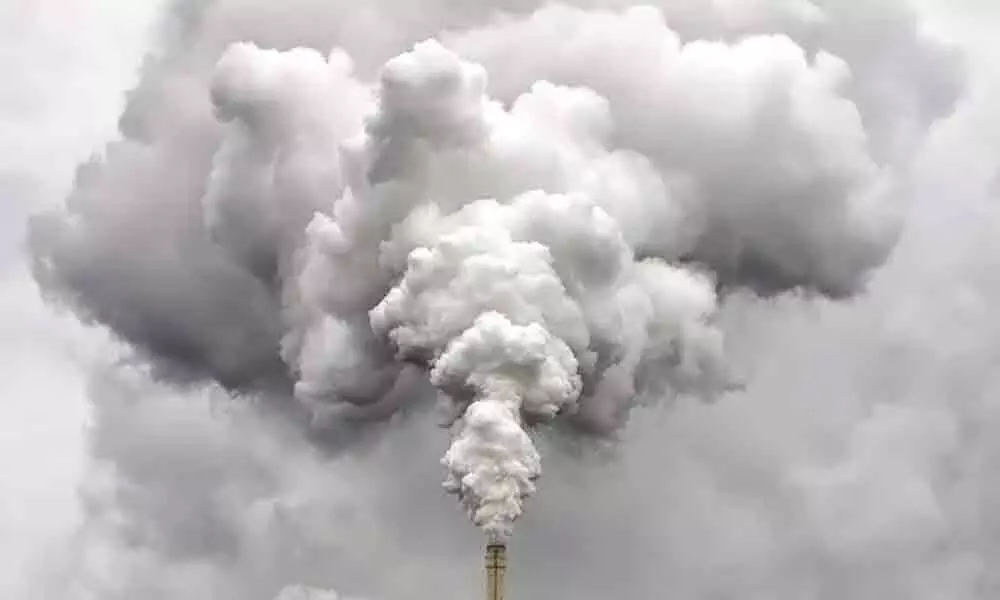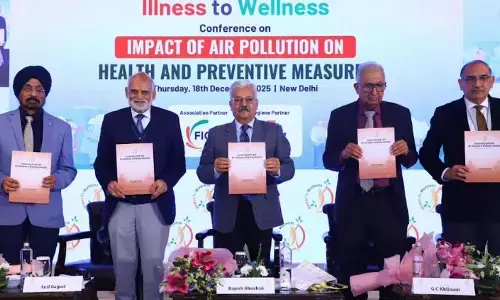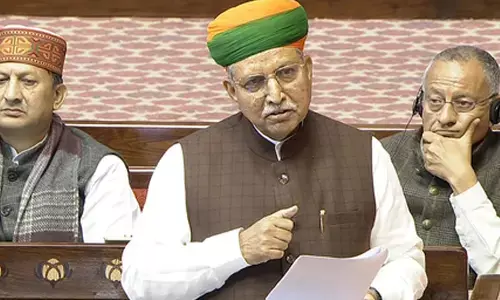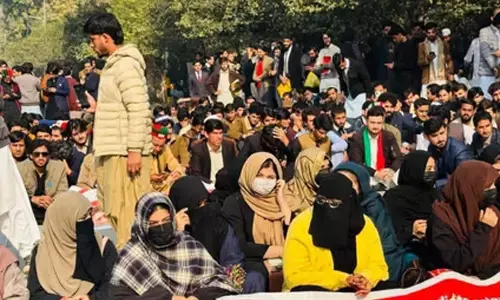Carbon emissions for 2020 to come down by 8% due to lockdown: Environment ministry

Carbon emissions are predicted to fall by around eight per cent across India in this year Due to the Covid-19 lockdown
Due to the Covid-19 lockdown across India this year's carbon emissions are predicted to fall by around eight per cent, a senior official of the environment ministry has said.
NEW DELHI: Due to the Covid-19 lockdown across India this year's carbon emissions are predicted to fall by around eight per cent, a senior official of the environment ministry has said.
During a virtual session organized by PHD Chamber of Commerce and Industry on Wednesday on 'Paradigm Shift in Business Sustainability " Strategies to Meet the Challenges in the Post Covid-19 scenario', Sujit Kumar Bajpayee, Joint Secretary, Ministry of Environment, Forest and Climate Change, said the pandemic has given an opportunity to jump start economies.
The pandemic has given a lot of challenges but it has given the opportunity to jump start the economies, rebuild societies through recovery plans and focus on climate change and environment conservation, he said.
Talking about the importance of environment and conservation of natural resources, he also insisted on the importance of bio-diversity. "We need to realize that our life and livelihood revolves around nature and the environment, he said.
Due to the Covid-19 lockdown across India, carbon emissions are predicted to fall by around eight per cent in 2020," Bajpayee said.
He pointed out that "nature" is an essential source of many medicines and industries like construction, agriculture, food and beverages are highly dependent on it.
Such industries require direct extractions of resources from the forest or rely on ecosystem services such as healthy soil, clean water, and a stable climate. Due to many reasons we are losing species and many have gone extinct, that has disrupted the eco-system," he said.
Bajpayee further said the impact of this pandemic is "so complex" that it will continue to be analyzed for years to come. He added that climate change and the pandemic are related to anthropogenic activities.
Due to the pandemic, many businesses need to change their models of sustainability and understand that we all need to take ownership of the future, he said.
Speaking at the session, D K Aggarwal, President, PHD Chamber of Commerce and Industry deliberated upon the improvement in the quality of air and water which he described as the "silver lining of the pandemic".
We could see the goodness of nature due to the lockdown and, we can see that nature had taken its course of stabilizing the things, he said.
Talking about business sustainability, he said in today's times it's driven towards contribution to the environment and society.
The environment is pivotal, we owe our duty and responsibility towards it to ensure that we do not pollute or damage it. In these times, many companies are investing their fund in Environmental, Social, and Corporate Governance (ESG) companies. We need to give back to the planet, people, and profit to sustain the environment, he added.
J P Gupta, Chairman, Environment Committee, PHD Chamber of Commerce and Industry said environment is a key driving factor for running industries and there is a need to be considerate towards the environment for sustainability and growth.
Under the Paris Agreement, India had pledged to reduce the emissions intensity of GDP by 30-35 per cent by 2030 and create an additional carbon sink of 2.5-3 billion tonnes of carbon dioxide equivalent through additional forest cover by 2030.
Last month Union environment minister Prakash Javadekar had said that India has achieved reduction of 21 per cent in emission intensity of its GDP between 2005 and 2014, thereby achieving its pre-2020 voluntary target.

















